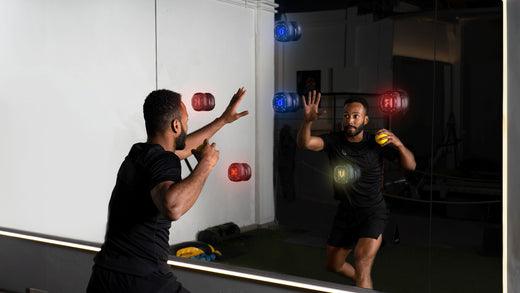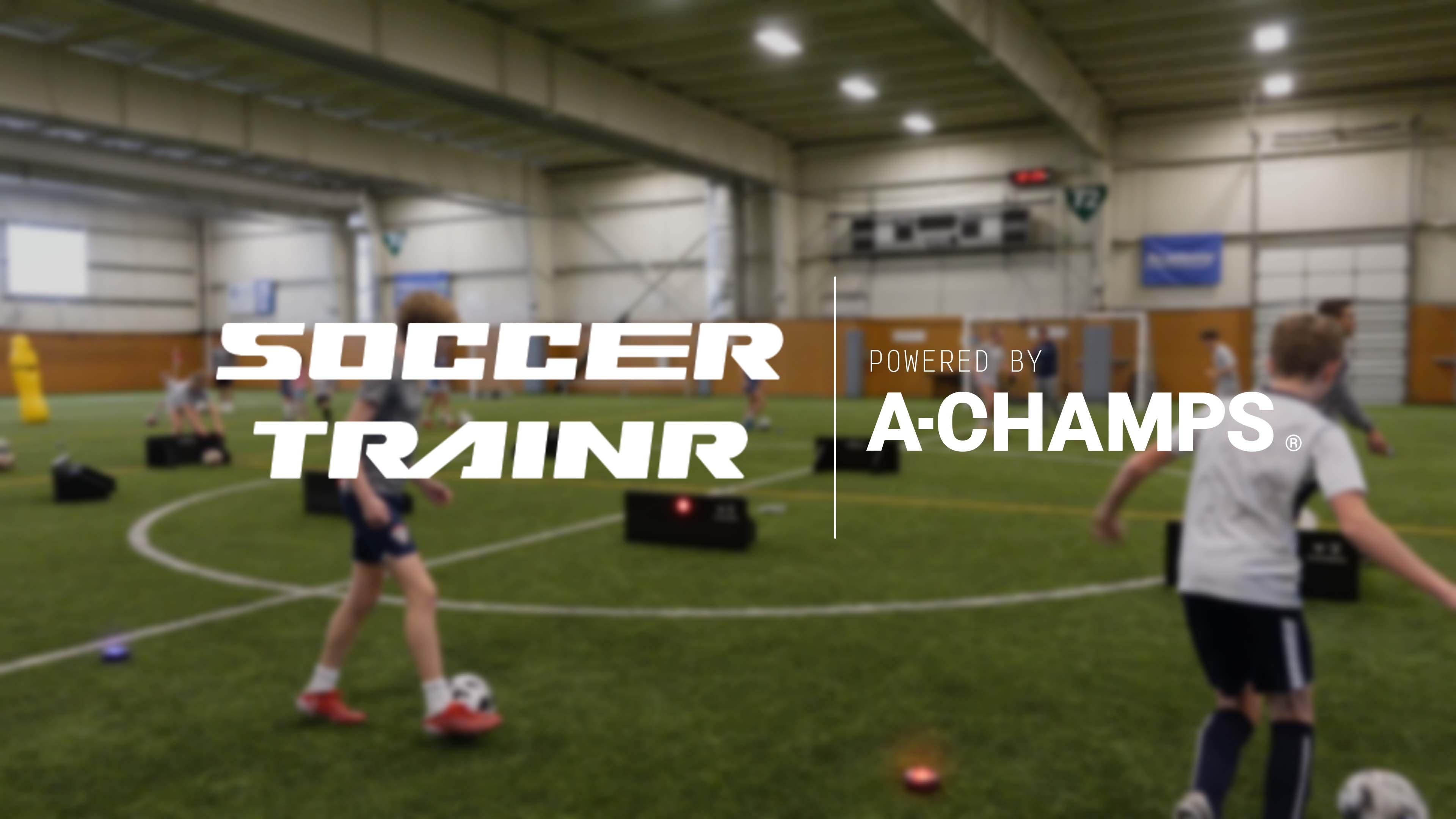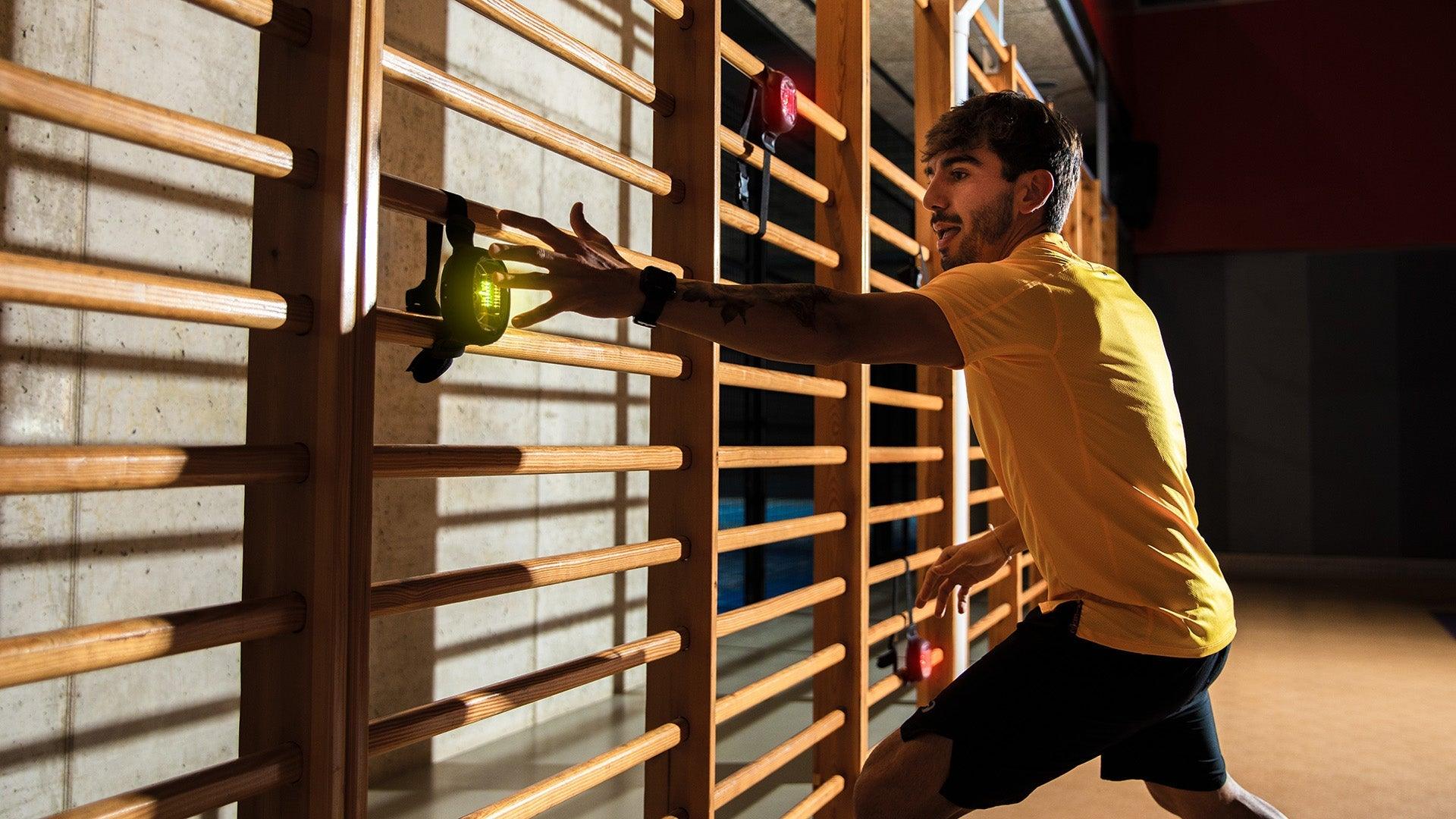To write, walk, or score a goal, you need one key thing: a connection between your brain and your body to process information and react. This connection is crucial in sports. It helps you respond faster and more effectively. Want to improve your reaction time?
At A-Champs, we prioritize mind-body training to unlock your potential. Let’s explore how to train your reaction time and improve performance!
What is Reaction Time?
Reaction time is the time between a stimulus and your response. It depends on your central nervous system (CNS), which processes information and sends instructions to your body. Improving reaction time leads to faster decision-making and better reflexes, both in everyday life and sports.
Why is Reaction Time Important?
Reaction time is important for everything you do. Whether it's daily activities or sports, a faster reaction time gives you a competitive edge. It helps you respond instantly to situations and opponents.
For a deeper understanding, read this article on Enhancing Performance Through Cognitive Training.
Factors Affecting Reaction Time
- Age: As you age, reaction time can slow down.
- Lifestyle: Sleep, nutrition, hydration, and alcohol consumption all play a role in your reaction time.
- Training: Regular training improves your reaction time by strengthening neural pathways.
At A-Champs, we’ve developed innovative technology to help you train both your brain and body to improve reaction time.
Why Should You Train Your Reaction Time?
Training your reaction time isn’t just for athletes. It improves mobility and can prevent injuries. A faster reaction time is essential for everyone.
To learn more about exercises that can help improve your reaction time, explore 5 Reaction Drills to Build Quickness.
7 Tips to Train Reaction Time in Sports
- Do Cognitive Exercises: Challenge your brain with constant visual and auditory stimuli. This improves processing speed and reaction time. For more on cognitive training, check out Brain Training for Reaction Time - Free Brain Assessment.
- Eat Well: A balanced diet and proper hydration support your CNS and improve reaction time.
- Get Proper Sleep: Sleep helps your brain recover and stay sharp, improving reaction time.
- Learn to Meditate: Meditation reduces stress and enhances sensory awareness, which improves reaction time.
- Train Physical Exercises: Focus on coordination, agility, and reaction drills. Explore exercises in this article on Top Exercises for Reaction Time to Boost Your Reflexes.
- Pick a Sport and Practice: Tailor your exercises to your sport—soccer, squash, boxing, hockey, or fitness.
- Download the A-Champs App: Use our technology to train reaction time through interactive exercises.
Sport-Specific Tips
- Soccer: Reaction time is critical for quick decision-making and movement on the field.
- Racket Sports: Focus on speed, direction changes, and cognitive agility.
- Boxing: Sync eye-hand and eye-leg reactions for precision.
- Hockey: Train perception, focus, decision-making, and spatial awareness.
- Fitness: Functional training improves mind-body agility.
Final Thoughts
Improving reaction time boosts sports performance and everyday activities. Our tips and the A-Champs training approach help you achieve your goals in a healthy, structured way. For more insight, read this article on Try These Easy Exercises to Improve Your Reaction Time.
Learn more about the science behind our project and start your journey to a faster, more responsive you.
FAQs
What is the best exercise to improve reaction time?
Reaction lights exercises, such as those with A-Champs ROX, combine visual, auditory, and tactile stimuli for complete mind-body training.
How often should I train my reaction time?
Train 3–4 times per week to develop muscle memory and neural pathways for faster responses.
Can I train my reaction time at home?
Yes! Use our free app and drills for home-based reaction time improvement.
Does reaction time training benefit everyday life?
Yes, it boosts coordination, balance, and injury prevention, benefiting everyone, not just athletes.






Leave a comment
This site is protected by hCaptcha and the hCaptcha Privacy Policy and Terms of Service apply.